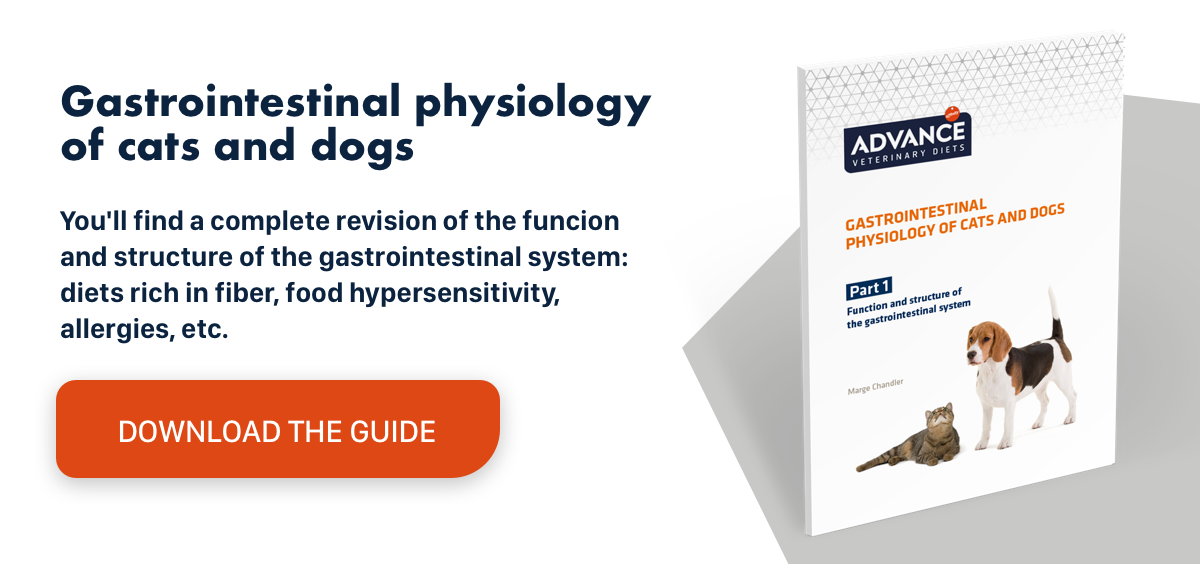Faecaloid vomiting
Introduction
Vomiting, as with diarrhoea, is one of the most frequent reasons for consultation in animals, as it can be a sign of both intestinal and extraintestinal disease.
What are the different types of vomiting?
Vomiting can be classified in different ways depending on the contents of the vomit, the vomiting action, its duration or any relation with food. A thorough anamnesis will yield information on the type of vomiting and any underlying disease. The different means of classifying vomiting in dogs include:
- Depending on the contents: it may be food-based, contain mucous, grass, bile or blood or be faecaloid (odour of faeces in the vomit.)
- Depending on duration: acute if it lasts less than 4 days or chronic for cases that course for longer or which reappear regularly. Acute and chronic vomiting have different causes.
- Related to feeding time: it may occur immediately after ingestion, likely due to gastritis, several hours after ingestion, indicative of intestinal obstruction or another cause of gastrointestinal hypomotility, or it may be the result of fasting, i.e., usually biliary reflux in periods of extended fasting.
- Act of vomiting: the vomiting may be nonproductive, in the case of diseases that course with frequent vomiting and gastric dilatation-volvulus, or it may be projectile, without prodromes, due to a proximal GI obstruction.
Faecaloid vomiting: causes
Faecaloid vomiting is indicative of gastrointestinal obstruction. An intestinal obstruction can occur for a variety of reasons, including paralytic ileus, intestinal torsion or intussusception, gastric dilatation-volvulus, foreign body impaction, persistent constipation, etc.
Faecaloid vomiting: treatment
Treatment depends on the underlying cause. Firstly, dogs with signs of dehydration and electrolyte imbalances should be given fluid therapy, usually parenterally. (Click here for information on the treatment of kidney failure in dogs).
Although controversial, so long as patients initially tolerate a solid diet, nutritional intervention should be considered as part of the treatment, with the aim being to administer small but several daily portions of a low-fat, low-fibre diet with easily digestible proteins.
Antiemetics should be given if vomiting compromises haemodynamic stability, while metoclopramide should not be administered to dogs with suspected intestinal obstruction due to its prokinetic effect. A gastric protector, such as ranitidine, famotidine or omeprazole, can also be used. When addressing the cause, surgery is indicated to remove large foreign bodies, treat some causes of pyloric obstruction and obtain full-thickness gastrointestinal biopsies.
Prognosis
The prognosis depends on several factors, including the type of obstruction, time to treatment and the severity of the animal’s condition at the time of diagnosis.
